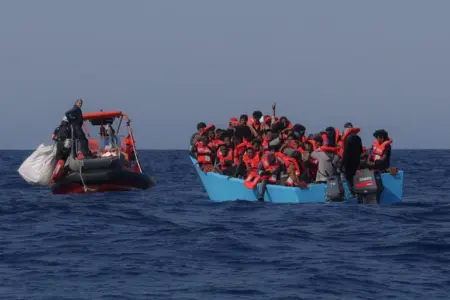With summer well under way around Europe, the sun has started to set on the political season at large. Yet, we still have Spain, after the country’s politics was paralysed following the results of snap parliamentary elections last weekend.
Contrary to what polls were suggesting in the run-up to election day, neither big party was able to score a decisive victory that would allow them to form a government.
For Spanish Prime Minister Pedro Sanchez, it was a sigh of relief, as his losing Socialist Party did better than expected.
“We got more votes, more seats and more percentage points than four years ago,” Sanchez told supporters.
His conservative opposition did not have the same reaction, however, with the People’s Party (PP) waking up with a slight hangover, as their victory was smaller than expected, making the expected coalition government with the far-right Vox party impossible to establish.
Nonetheless, PP leader Alberto Nu?ez Feijo? claimed the right to form a new government.
“If Mr. S?nchez does not accept dialogue with the Popular Party, we will explore all ways to provide Spain with a government and to do so as soon as possible,” he said this week.
With the PP and Vox far from an absolute majority, Sanchez’s re-election now depends on Catalan pro-independence parties.
But they want amnesty from previous illegal independence attempts and a new referendum on self-determination – something that the socialists have already rejected.
So, the political future of the country is uncertain – there might even be a new election later this year.
For conservatives across Europe, the Spanish election offers a sharp lesson on how partnering with the populist right can go badly wrong.
Frontex under scrutiny again
In other news, the EU’s watchdog launched an investigation on Wednesday into the role the bloc’s border agency Frontex played in one of the deadliest migrant shipwrecks in recent history.
Among the documents EU Ombudsman Emily O’Reilly has demanded access to is the formal report by the Union’s external border agency about how events unfolded when the Adriana boat sank on 14 June off the coast of Greece.
Up to 750 people were on board the fishing vessel. Only 104 survived while 82 bodies were recovered.
The tragedy reignited sharp criticism of the Greek coastguard as well as Frontex who are accused of not taking the necessary actions that could have prevented the shipwreck.
Frontex has said it offered assistance to the Greek authorities after the overcrowded boat was spotted but that both calls went unanswered. Greek authorities have meanwhile defended its operation — a single ship was sent but offered no assistance after the captain of the trawler reportedly refused help in order to continue sailing towards Italy.
An investigation has been launched at the national level but O’Reilly said in a statement that “Frontex’s role in search and rescue operation also needs to be clarified.”
“I decided to see what we could do in relation to filling the gaps in the story and primarily by looking at the role of the EU’s border agency, Frontex, to see what it knows about it, its involvement in it, its responsibilities, its legal obligations and other obligations in relation to it,” she told Euronews in an interview.
Summer heatwaves continue to blaze
The middle of the summer is for many the best time of the year, but across the Mediterranean, especially in Greece, hellish heat was experienced this week.
Southern Europe has been at the centre of sustained and unprecedented heatwaves for more than two weeks now.
And this extreme heat spiraled into wildfires of apocalyptic proportions.
According to experts, it is the result of a combination of climate change and El Nino – a weather phenomenon that warms the Pacific Ocean.
Thousands of firefighters and volunteers were battling to extinguish blazes in at least nine Mediterranean countries.
In the midst of all this, the European Commission announced on Thursday that it will purchase 12 new planes to increase the capacity of its aerial firefighting fleet.
The 12 sought-after ‘Canadair’ aircraft will be wholly financed by the EU, but stationed in and legally owned by Croatia, France, Greece, Italy, Portugal and Spain.
“We have recently achieved a breakthrough with a potential producer of the most sought-after Canadairs to resume global production again,” European Commissioner for Crisis Management Janez Lenar?i? told Euronews.
“We will be able to further boost the rescEU firefighting air fleet (…) in order to respond to such intense fires which are becoming a new normal,” he added.
Pilots for the new aircraft will be provided by the six member states, while the EU will finance the other staff needed to ensure their availability and deployment.
These new planes will not, however, be available until the 2027 forest fire season.





